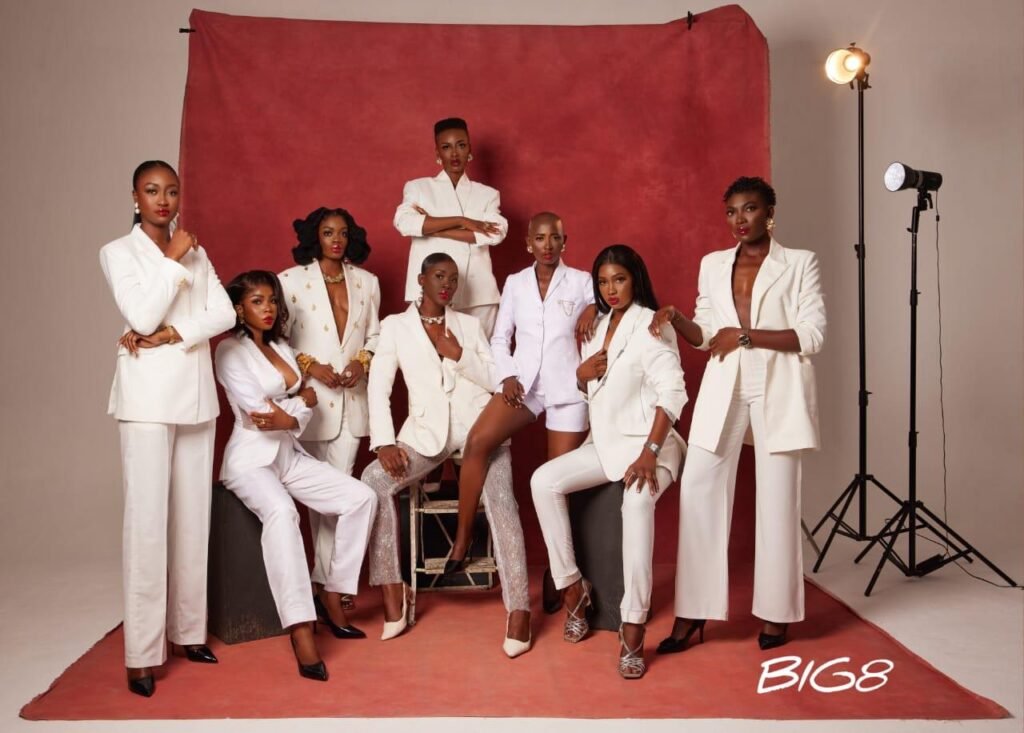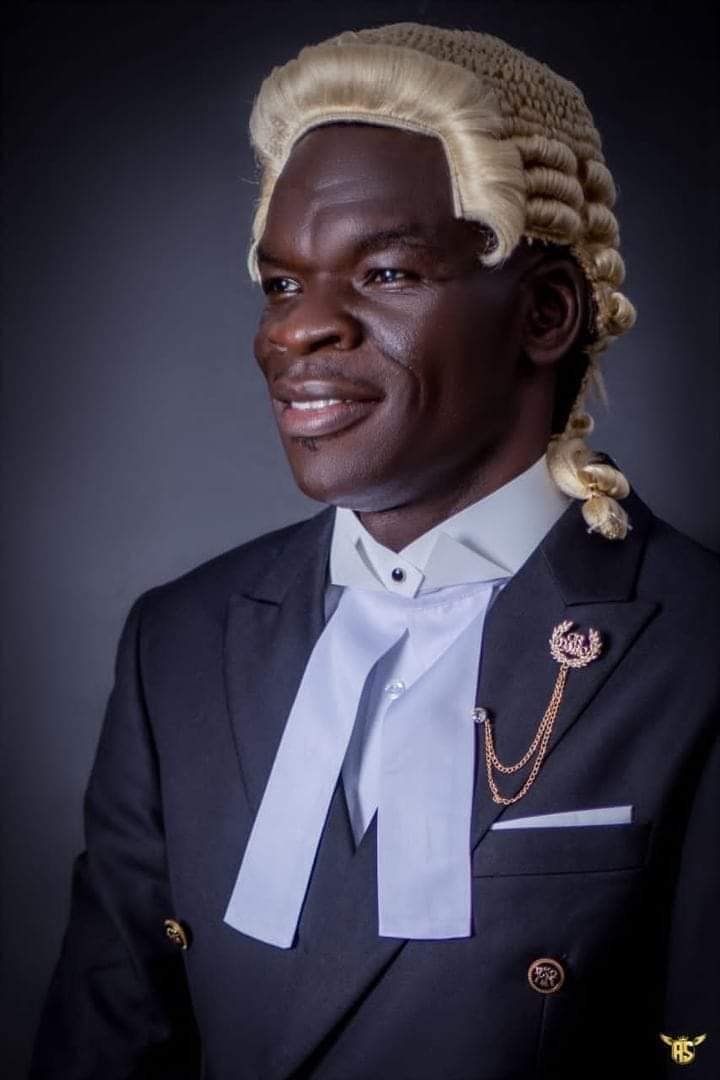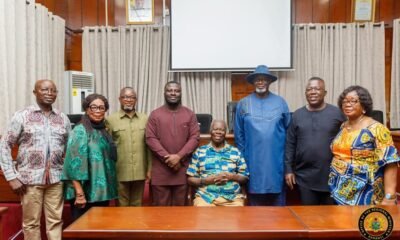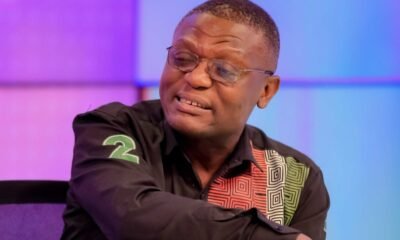Profile
From devastation to glory… Bitter-sweet story of a lawyer who is blind

How would you feel when you woke up early in the morning and realised you were losing your sight – in other words, going blind in both eyes?
This was how it all started for an ambitious young man – Jones Odame, who was dreaming to become an investigative journalist or lawyer.
Dejectedly, on Monday, March 5, 2007, that lofty dream took a devastating blow in the face when Jones, the second-last of eight siblings, woke up with a blurred, grey and dim vision.
Later, the eyes were gone. He could see no more! It was such a torturing experience.
But how did he survive life’s out-of-the-blue turbulence? How did he soar down to the sea and float on it?
Wait a minute. We shall come to that survival story.
Born some 39 years ago to Mr T.G Akyea and Madam Gladys Asantewaa, both of whom hail from Anum – an Akan community in the Asuogyaman District of the Eastern Region, Jones began his basic education at Akwatia – also in the Eastern Region – and continued at the Anum Presbyterian Senior High School from where he proceeded to the Peki Teachers Training College in the Volta Region.
On completion, he taught for two years at Akim Akroso, also in the Eastern Region, until disaster struck one fateful Monday morning.
“I had woken up one Monday morning to prepare for a church programme, as I was the District President of the Young People’s Guild (YPG) in the Nsaba District in the Central Presbytery of the Presbyterian Church of Ghana, when I realised I was going blind,” he recalled.
Immediate reaction: Ceaseless and intense prayers were offered by church members in search of a miracle. Nothing happened.
Tremulous and utterly confused, Jones hurriedly left Akroso on Friday of the same week for the Emmanuel Eye Clinic at East Legon in Accra, which had been recommended to him, in search of solution to the fast-fading sight.
“There, the doctor also directed me to the Korle-Bu Teaching Hospital for further assessment after which I was booked for theatre the following Tuesday for a supposed correction of my sight.”
The operation was done. It was retinal detachment repair of the eyes after which he had to spend about a week in the recovery ward.
Finally, the D-day came for the eye shields or bandage to be removed – amid tension and anxiety that had crammed up the ward. His family and friends had come to offer a world of support to him, hoping for the best.
But alas Jones could not regain his sight after the eye-pad had been removed.
“Can you see? Can’t you see anything? Can you see me?” These were words from the eye surgeon that only met a reaction of tears and desolation.
“It was not an easy thing to be told I couldn’t see again for the rest of my life. I was really, really wrecked, heart-broken and devastated,” Jones recollected.
The doctor then advised him to go to the School of the Blind at Akropong in the Eastern Region, since there was “absolutely nothing” that could be done about his situation.
Hardly hit, members of his church at Akroso including one Mr Amponsah, Auntie Mariam from the Netherlands, Kwaku Odame (not his brother) and Reverend Bekai, got some doctors from the USA to confirm that his eyes were truly damaged.
After several failed attempts to restore his sight, Reverend Bekai introduced Jones to a former Head of the School for the Blind, to try to conscientise and introduce him to the Braille. Braille is a form of written language for people who are blind, in which characters are represented by patterns of raised dots that are felt with the fingertips.
“It was there that I realised I had to accept my situation willy-nilly. Indeed, I cried my head off the very first time I touched the braille.”
However, after realising that there was nothing he could do, Jones – as he is affectionately called, begrudgingly agreed to settle for the School of the Blind, where he was first admitted into the Rehabilitation Class.
The Rehab Class is meant for those who were not born blind.
There, he saw a couple of people who had his kind of story including the Counsellor, a Masters Degree holder.
“You can be whatever you want to be in this world through the braille; so don’t be discouraged at all,” were the words of encouragement from the counsellor.
According to Jones, he was hugely motivated by that admonition – and though a year’s course or more, “I spent only two months reading and writing perfect braille.”
With his confidence fully restored and thinking there was no time to waste, he applied and was admitted into the University of Ghana, Legon, to study Political Science and Sociology in 2007.
After four years of diligence, Jones emerged with flying colours – chalking First Class in his area of study.
And, as destiny may have it, he landed at the Commission on Human Rights and Administrative Justice (CHRAJ) in Accra for his one-year National Service.
“It was there that I realised one of my childhood dreams to be a lawyer was on course.”
So, in 2014, he applied to the University of Ghana School of Law, where he passed an entrance examination to pursue a Bachelor of Laws degree (LLB) – completing in 2016.
Thereafter, Jones gained admission into the Ghana School of Law (Makola), but had to defer the course for two years after the 2016-2017 academic year, owing to reasons he said, were personal.
He, however, bounced back ‘gallantly’ in 2020 to complete his course and was called to the Bar on Friday, October 1, 2021.
The day was a historic one for Lawyer Jones Odame as he was given a standing ovation by the Chief Justice (CJ) Kwasi Anin-Yeboah, the former CJ Mrs Georgina Theodora Wood, the Attorney General and Minister of Justice, Mr Godfred Yeboah Dame and an array of eminent justices, when his name boomed from the ‘loud speakers’ as among the 278 lawyers called to the Bar. Apparently, his story was known to all of them. They know it has taken him a Himalayan effort to make the journey.
This year’s event – held at the International Conference Centre in Accra, was the 58th Anniversary in the history of enrolment on the Roll of Lawyers.
“It’s been a hard, tortuous journey, but thank God I have been able to achieve my childhood dreams,” an elated Lawyer Odame, who is married with two children (twins), told The Spectator.
He advised the visually impaired or those who unfortunately find themselves in his situation, not to give up but strive hard to achieve their goal.
“You don’t have to take your life or throw up your hands in despair when confronted with a situation like mine. Life itself is not easy, but with focus and that intrinsic motivation, you can achieve your dreams,” he asserted.
Lawyer Odame took the opportunity to express his appreciation to the Director of the School of Law, Mr Maxwell Opoku Agyemang, the two Registrars of the school and his 2016-2017 Year Group, adding that “this success wouldn’t have come without their encouragement and financial support.”
For now, Lawyer Odame is dreaming of working with the United Nations to champion issues relating to disability.
“Having lived as a sighted person and now as a person who is blind, I have become passionate on issues relating to disability and how they are handled in our society – and will, therefore, wish to work with the UN or any reputable NGO which mandate is to promote the welfare of persons with disability.”
By John Vigah
Profile
Prisca Abah: Ghana’s modelling powerhouse

Ghanaian model, philanthropist and advocate, Prisca Abah, who is known for her contributions to the fashion industry, is strutting her stuff on higher levels.
She was recently selected as one of the models for the Big8 Girls Project, an initiative by Clinton Samuel to celebrate influential African models.
The project consisted of three episodes: the Bio Shoot which highlighted Abah’s professionalism through a corporate-themed photoshoot; Afrodeity which focused on showcasing her confidence and artistry, celebrating the African divine feminine and royalty which presented Abah as a symbol of African cultural pride, embodying strength and elegance.

The Big8 concept, produced by Clinton Samuel, intentionally highlights and celebrates the strongest and most influential models on the African continent, congratulating their steadfastness and contributions to the African fashion industry, even as they grind and win in other aspects of life.
The Big8 sets hierarchy and high standards in the African fashion and modelling industry, crowning eight of them with the ‘Top Model’ status as the leading female models in Ghana at the moment.
“Working with these fiery women will surely ignite more creative minds and stir the pot of positive competition,” said Clinton.

Abah’s early life and career
Prisca Abah began her modelling career in 2013, achieving her first notable milestone in 2014 with an editorial shoot for 5-Star International Modelling Agency. In 2015, she made her runway debut at the Ghana Fashion Awards.
From 2016 to 2018, Abah participated in major African fashion events such as Glitz Africa Fashion Week, Mercedes-Benz Fashion Week in Johannesburg, and Rhythms on the Runway.
During this period, she received accolades, including the “Best Female Model of the Year” and spoke as a UN Ambassador for Sustainable Development Goal 12 at the Sustainable Rice Platform Conference.
International recognition and pageantry
In 2022, Abah expanded her reach by entering the pageantry world. She placed as the first runner- up at the Beauty of Africa International Pageant and represented Ghana at the Miss Globe World Finals, where she earned the title of Miss Globe Africa 2022.

Philanthropy
Abah founded the Palins Foundation, a non-profit organisation, aimed at empowering women and youth through initiatives in education, skills training, and personal development.
Awards and collaborations
In 2023, Abah received the Best Model of the Year award at the Time Ghana Arts and Entertainment Awards. She has collaborated with leading designers such as Charlotte Prive and Ejiro Amos Tafiri, further solidifying her influence in African fashion.
Legacy
Prisca Abah is recognised not only for her contributions to the fashion industry but also for her philanthropic efforts. Her journey serves as an inspiration to young Africans, encouraging them to pursue their dreams while giving back to society.
By Edem Mensah Tsortorme
Profile
Juventus Duorinaah, Ghana’s first deaf Lawyer

In a landmark moment for Ghana’s legal landscape, Juventus Duorinaah Esq., has etched his name in history as the country’s first lawyer with a hearing impairment.
His journey from a humble background to breaking barriers in the legal profession serves as a powerful inspiration for countless individuals in the disability community, proving that determination and resilience can defy societal expectations and create pathways to success.
For Juventus, the recognition as Ghana’s first deaf lawyer feels surreal.
“It feels like a dream,” he reflects, acknowledging the stereotypes surrounding deafness and the humble background from which he hails.
Juventus’ passion for law sparked in 2008 while seeking admission to the University of Ghana (UG). Although he initially faced challenges due to the nature of the application process, the help of his older brother and his determined spirit led him to pursue a Bachelor of Arts degree in 2012, followed by a Master of Laws at Cardiff University in 2014.
His passion for the study of law became highly intense when he had to study alongside qualified lawyers from several jurisdictions, even though he did not have a legal background. Here, he faced the unique challenge of studying without sign language interpreters, relying instead on a palantypist to transcribe lectures.
Juventus’ role model was his professor and mentor, Professor Luke Clement, who profoundly inspired him in shaping his understanding of law and human rights.
He remembers Prof. Thomas Stephens from the University of Ghana School Of Law, who inspired him with his way of dressing, in-depth knowledge of the law and engagement with students.
He recounts the enormous challenges he encountered during the COVID-19 pandemic in 2020, when lectures moved online, and Dr Stephen’s tremendous support to ensure things moved quickly and smoothly for him.
“I also had the chance to have a few classes with the Dean himself, Prof. Raymond Atuguba. He taught the course such that some of us never felt scared as other lecturers made the course,’ he recalled.
Juventu’s academic journey was fraught with challenges, particularly in communication.
The year 2007 was the last time he studied with deaf peers. He was often the only deaf person in his classes throughout the following years of his education, which made interaction with peers difficult.
Despite these hurdles, he remained high-spirited, studying late into the night and seeking help from kind classmates when necessary.
Reflecting on his academic experience at UG, he connected his affection for the university to his older brother, who is also an alumnus. He felt inspired to be a student of the premier university, saying he would choose the University of Ghana any time, any day, if given the chance to further his studies or work.
The University Of Ghana School Of Law, along with its Dean, Professor Raymond Atuguba, the Director of Legal Education of the Ghana School of Law, Yaw Bramiah Oppong, and his capable team, including the Registrar and Deputy Registrar of the Ghana School of Law and the Office for Students with Special Needs (UG), made significant contributions to his journey.
Prof. Atuguba acknowledged Juventus’ achievement as evidence of the university’s commitment to Diversity, Equity and Inclusion.
Commenting on how the school accommodated his special needs, Prof. Atugugba explained that ‘In the case of Juventus, we worked closely with him to understand and address his special needs, ensuring he had access to the teaching and learning resources in the appropriate formats that would support his academic journey.
Professor Atuguba noted that Juventus’s journey is just beginning, and the future holds promise for him and the many lives he aims to touch along the way.
Juventus’s close friend, Ida Esi McOwusu Esq., described her first encounter with Juventus as ‘intriguing.’ “My first meeting with Juventus was in class, where he sat right in front of me in first year,” Ida reveals. She was intrigued and wanted to find out more about him, especially how Juventus navigated his way to this level. “I got closer and we became friends from there,” she remarked.
Mr Francis Kweku Essel, Juventus’ interpreter, shed light on the primary challenges he faced in carrying out his job, particularly the complex nature of legal terminology and concepts. This validates Ida’s comment on the interpreters’ lack of legal background as a challenge Lawyer Duorinaah encountred.
Juventus dreams of becoming a judge and aims to enhance justice delivery while serving as a role model for young people with disabilities.
He is currently mentoring a group of young deaf students interested in pursuing law, hoping to pave the way for future generations. What’s next for Lawyer Juventus? His next step is to complete his pupilage, after which he can decide further his legal career.







